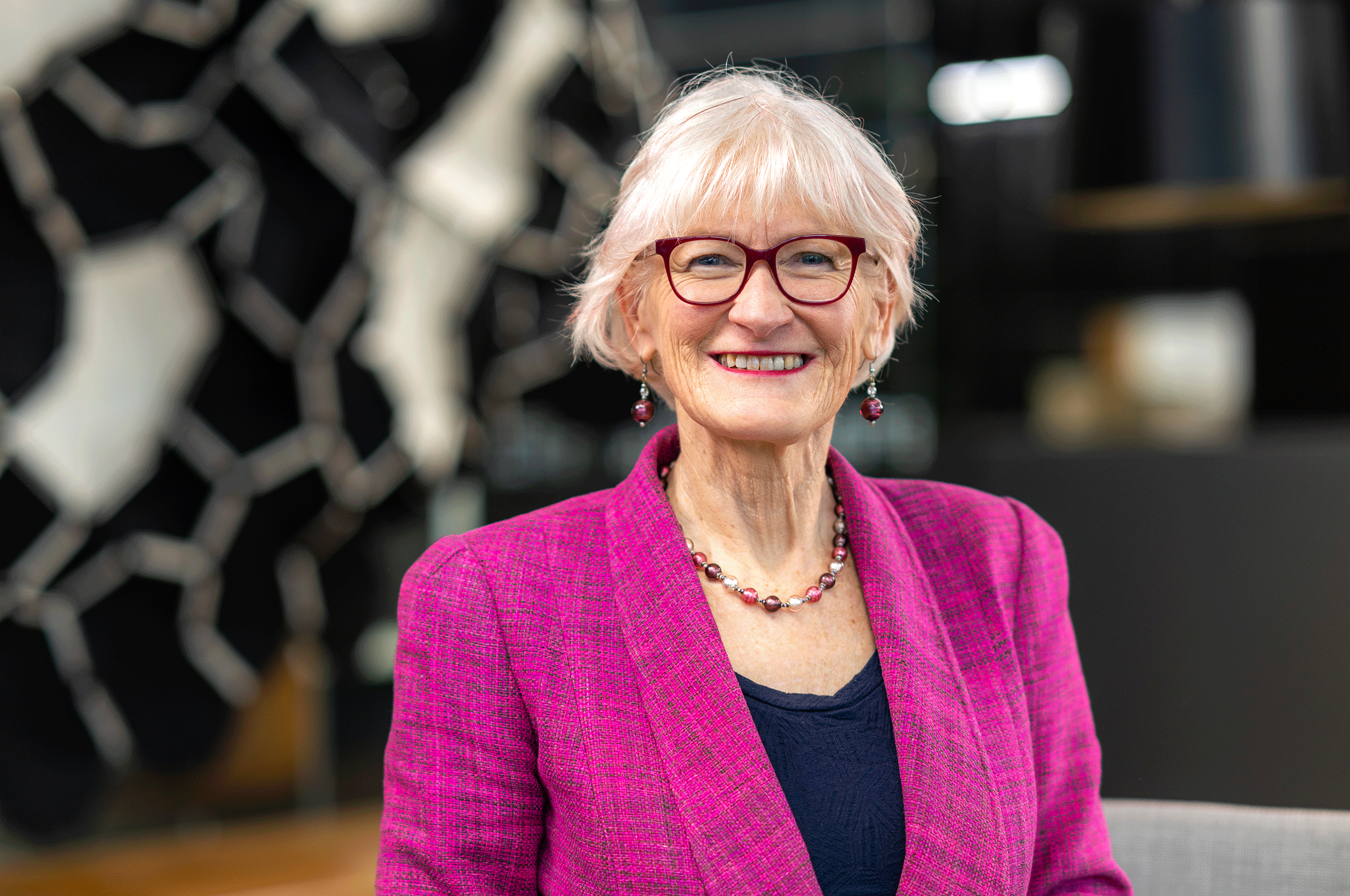
Maggie’s gifts are helping support the future of maternal and child health
Maggie’s time as a researcher at La Trobe’s Judith Lumley Centre inspired a lifelong connection. Her generous gifts will ensure mothers and children's health is supported ongoing.
When midwife and researcher Maggie Flood noticed a concerning rise in childbirth-related blood loss, she wanted to know if it was more than a statistical blip.
“I was looking at the data… and I started to think, there’s something not quite right here,” she recalls.
That observation led to a PhD at La Trobe University’s Judith Lumley Centre, where Maggie’s research would contribute to clinicians' knowledge and understanding of the rising rate and severity of postpartum haemorrhage. It has since informed clinical guidelines and improved care across Victoria.
Maggie’s impact on maternal health has been profound – and it hasn’t stopped with research. Today, she’s helping the next generation of researchers through her philanthropy.
She has contributed a $1,000 bursary for a postgraduate student at the Judith Lumley Centre for the past five years, with plans to renew it for another five. She has also made a $20,000 gift to support further research into postpartum haemorrhage associated with births in Victoria.
“What I really value about giving to La Trobe is that a scholarship might support a rural student with fewer opportunities, or a student from a refugee or less privileged background.”
Like many students and researchers, Maggie discovered a powerful sense of connection at the Judith Lumley Centre, where she was welcomed into what she describes as “a really strong network” of midwives and researchers.
“It was a wonderful environment with so much nurturing and support,” she says. “Those are the key features of the Judith Lumley Centre.”
That experience was transformative. But as a mature-age student living in regional Victoria, Maggie also faced significant challenges like long commutes, part-time work, and the demands of postgraduate study.
Grants funded by La Trobe and other donors helped ease that burden. They enabled her to meet the expenses of research, attend conferences, share her results, and stay on track – support she now recognises can be the difference between completing a degree or dropping out.
“You don’t have to give millions of dollars; it can be something quite small. But without it, some students can’t finish their degrees... So, I’m more than happy to be able to contribute to that in my small way,” she says.
Her motivation to give back was also shaped by her childhood. Growing up in a family of seven children, Maggie watched her parents give what little they could to causes they believed in, even when times were tough. That quiet generosity left a lasting impression.
“I thought, why can’t I be a donor, even in a very modest way, to help someone else the way I was helped during my PhD?”
Now, Maggie is thinking ahead. She has pledged a bequest to La Trobe to ensure her support continues long into the future.
“If I can do it, anyone can consider making just a small contribution… If not now, then by leaving it in their Will,” she says, “The impact of La Trobe research isn’t pie-in-the-sky, ivory tower stuff. It benefits individuals, families, and communities.”
Her gift will support ongoing research and training in mothers and children’s health, with a focus on improving care in rural and regional communities.
For Maggie, philanthropy is about opening doors. It’s a way to carry forward the values that shaped her own path and ensure they continue shaping others.
“I hope I might inspire people to think ‘that’s not so hard, I could do that too’.”
You too can make an impact
Maggie's gifts ensure that maternal and child healthcare research can continue at La Trobe's Judith Lumley Centre. There are many ways you can make your impact by supporting essential research at La Trobe.
